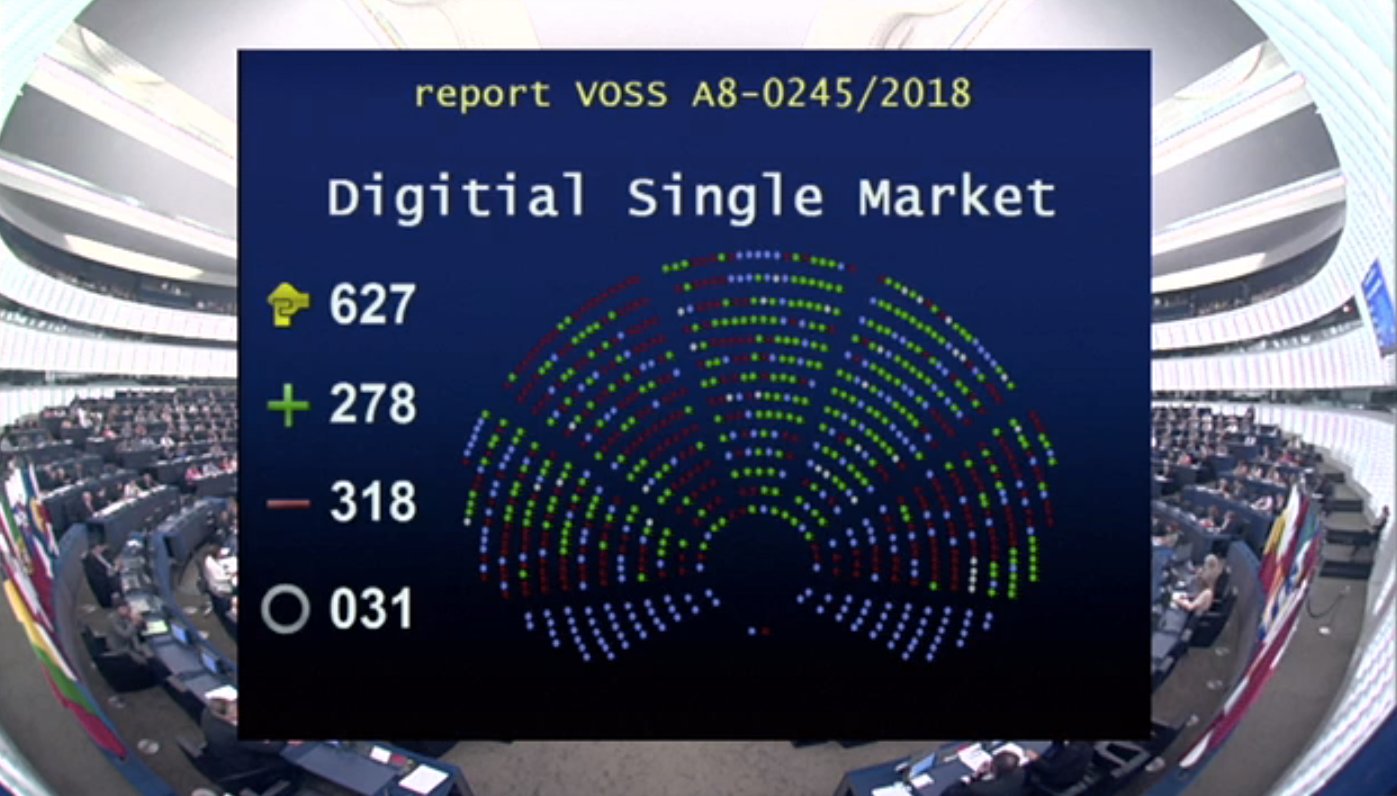Update

Voting Results
On 5th July the European Parliament voted against starting its negotiations with the Council on reforming the Copyright directive on the basis of the report of its Legal Affairs committee (JURI). This means that the JURI report will be debated and voted upon during the September part-session. MEPs will then decide to confirm the mandate as proposed by JURI or amend it.
The protection of individual user data and the freedom to access and share news and articles online are of paramount concern to Labour MEPs and we are committed to ensure that these freedoms are maintained and strengthened. Therefore citizens’ concerns surrounding these issues will be at the forefront of our minds as the legislative proposals pass through the European Parliament.
In its proposal to reform EU copyright rules, the European Commission said that it aimed to make outdated rules suitable for the digital era, as they currently do not offer enough protection against piracy and the use of content without proper remuneration to the author or artist. At the same time, they accepted that this must be balanced by offering citizens greater legal certainty when accessing content online.
The “Press Publishers’ Rights,” found in Article 11 of the current proposal, if adopted by the European Parliament, would ensure that publishers receive remuneration for the online exploitation of their content. The proposals would give press publishers the same rights as individual journalists and photographers to license their content. Whilst examining this proposal, Labour MEPs have paid particular attention to ensure that no liability is attributed to individual users, but rather the service providers, such as social media platforms, who use content without a licence. This means that users sharing links to news publications on social media are not affected, it is the platforms who are held accountable for the use of the work.
Labour MEPs are also particularly conscious that whilst this right improves the position of press publishers, individual authors such as journalists should also benefit from the proposals and have therefore backed modifications to ensure that this is the case. It is essential to rectify this balance.
There have been concerns around a “link tax” being created by Article 11. Labour MEPs have been keen to ensure that this is not the case. The use or sharing of hyperlinks is explicitly excluded from the scope of the report in part 2a of Article 11:
The rights referred to in paragraph 1 shall not extend to acts of hyperlinking.”
Article 13 has also been the subject of much debate. Its aim is to provide legal clarity as to where the liability lies for copyrighted content uploaded onto video platforms. It enhances the legal certainty for users to post and share things, as it obliges the platforms to get licenses from artists that will cover the acts of all individual users acting in a non–commercial capacity. Article 13 imposes no obligation on users.
For example, under the Commission proposal, platforms such as YouTube and Daily Motion would be responsible for taking reasonable steps to ensure that any copyrighted content is either properly licensed or taken down. This may necessitate the use of content recognition technologies, which are already used to ensure that inappropriate content such as hate speech or terrorist propaganda does not appear on video platforms and does not require any analysis of user data nor reveals the identity of the user. The content recognition technologies assess the content of the video alone, to ascertain whether or not it is, for instance, a popular music video which has not been licensed for such use. In order to reassure individual users, the proposal envisages a complaints mechanism to ensure that users know why their content has constituted an infringement of copyright, and Labour MEPs support modifications to the proposal that would clarify that individual users will not be held liable for copyright infringement.
One of the main purposes of Article 13 is to make sure that artists themselves benefit from their work, not just companies which share it, such as YouTube, which makes significant revenue from advertisements alongside popular items, while paying artists very little. Services such as Spotify, which do negotiate licenses prior to making music available, pass on an annual revenue for record labels to pay the artists, which is significantly higher than YouTube does. Article 13 ensures legal clarity for liability, and encourages sites such as Youtube to take proper steps to ensure copyrighted content, such as music videos, are properly licensed or taken down.
The proposal will enhance the legal certainty for users, ensure the producers of content are adequately remunerated and give greater accountability to service providers.
The proposal has some way to go before it becomes law, as it needs approval from both the elected European Parliament and the Council (ministers from the governments of the Member States), both of which will put forward amendments before they are willing to approve it. I support the modernising of our online protections and feel that, while this proposal addresses numerous inequalities in the digital marketplace, it is incumbent on us to get the balance right as it goes through the legislative process.
